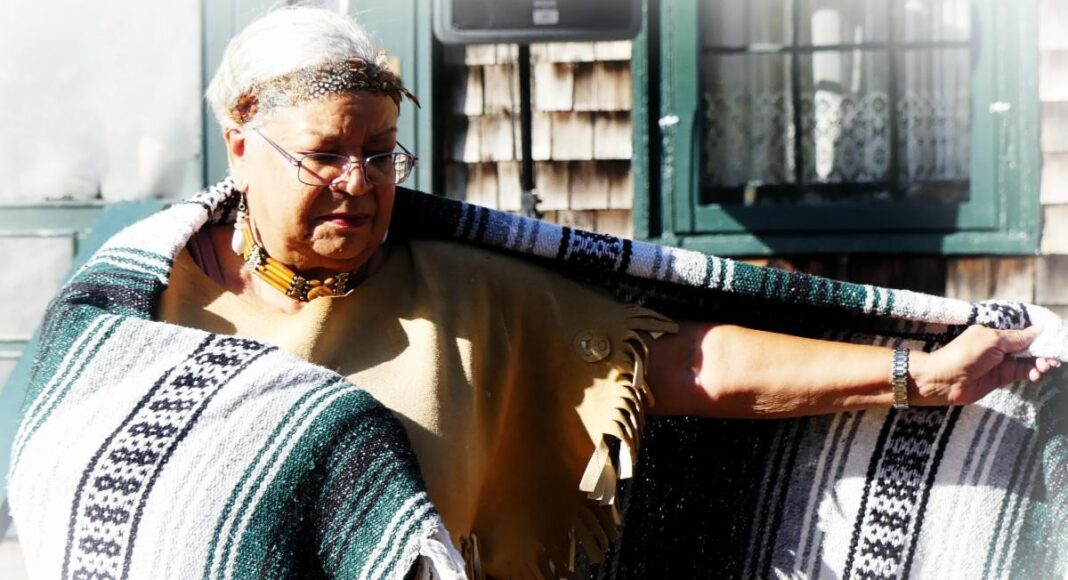The Montaukett Recognition Bill (A4069/S6889) was delivered to Governor Kathy Hochul’s office on December 12, 2022. She now has 10 business days (until December 23) to sign or veto the bill.
The recognition granted by the bill does not give the tribe jurisdiction over previously held lands.
“The only thing that comes with state recognition is righting a wrong,” said Sandi Brewster[1]Walker, executive director and government affairs officer for the tribe.
For the Montaukett Indian Nation, recognition is worth far more than whatever fringe health and childcare payments the state sets aside for tribal governments. It means being seen.
“… we were declared non-existent, with 300 people in the [court] room,” Brewster-Walker reflected of the injustices faced by her tribe.
Gaynell Stone, Ph.D., Suffolk Archaeological Association, in reviewing John A. Strong, Ph.D.’s book, The Montaukett Indians of Eastern Long Island, states, “Strong reveals the racist nature of American society at the turn of the century and how the press set the tone with negative reporting of the Montaukett and oth[1]er groups seen as marginal…..in 1909 in which Judge Blackmar, a year later, ruled there was no Montaukett’ tribe’ subject to the protection of the laws of the State of New York or the federal government.”
The Montaukett’s primary headquarters sat abreast of tracks of land that Arthur Benson, a member of one of the oldest and wealthiest families in Brooklyn, and Austin Corbin, owner of the Long Island Railroad, were aiming to use as a deep-water port. Through unscrupulous methods that sat on suspect legal footing, including suspected arson, the historic homeland of the Montaukett was lost.
After swindling the Montauketts out of their land, Benson found out Fort Pond Bay could not be dredged to handle the ocean vessels. His plan never materialized, but the damage was done. In later years, a series of lawsuits decimated the financial resources of the tribe and put them on a dubious legal footing. The final legal blow for the tribe was in Pharaoh v. Benson, where the ruling judge ruled that the tribe had lost their “Indianness” and that the tribe no longer had legal standing as an entity before the court.
Subsequent attempts to have the federal government intervene were also unsuccessful.
The Montaukett Tribe is also planning to pursue federal recognition next year.
Contrary to popular perception, the Montaukett were not just found in Montauk as their name would suggest. Brewster-Walker described various locations in present-day Islip, Brookhaven and beyond that were home to various tribal families. Various clusters existed throughout Suffolk County, with Brewster stating that many of the ‘tribal names’ we are familiar with today were geographic locations that, through the years, became considered tribes.





